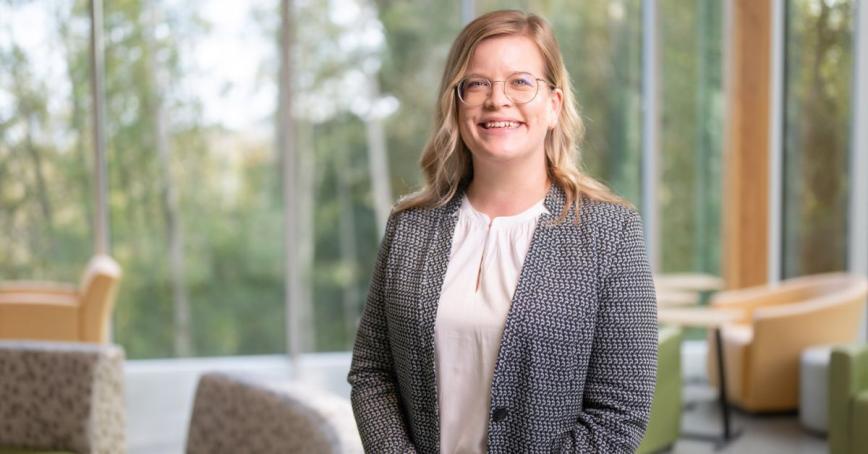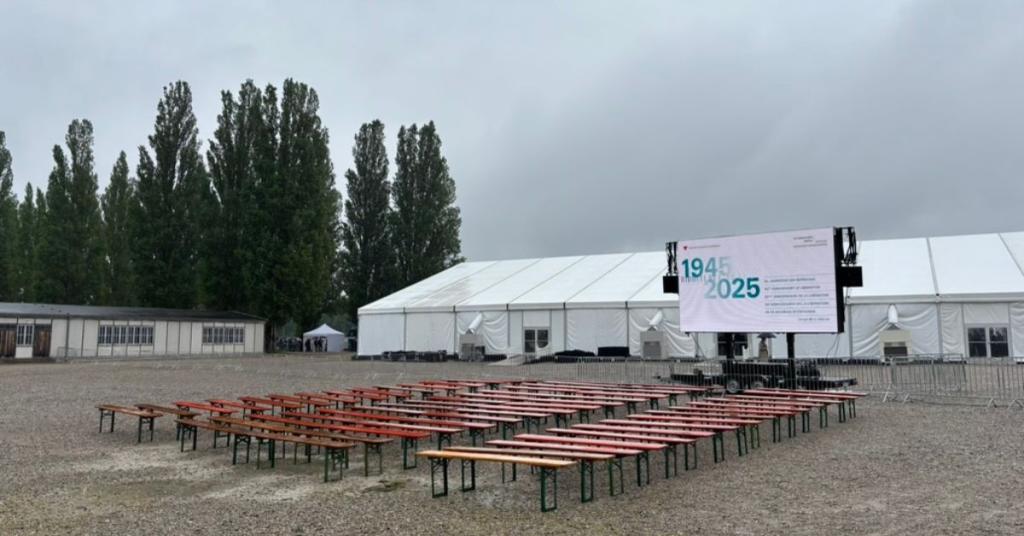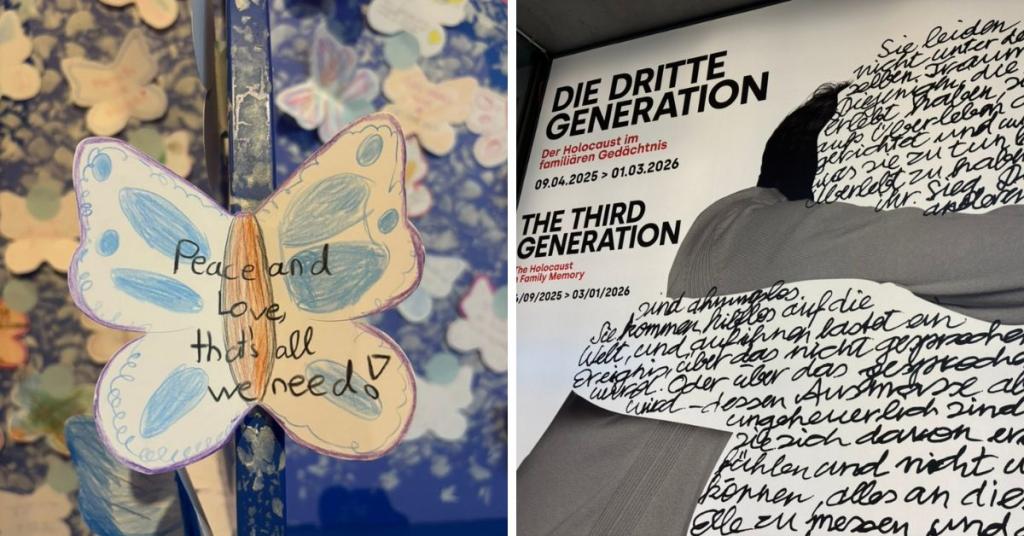Holocaust lessons resonate 80 years later, Royal Roads prof learns
Topics
Featured
Share online

Learn more about the School of Tourism and Hospitality Management.
“Memory is fallible... It’s not so much the historical record that is necessarily valuable, but an understanding of what it was like to be an individual going through that experience.” — Vancouver Holocaust Education Centre
The Holocaust ended with the conclusion of the Second World War and the liberation of Nazi concentration camps 80 years ago. But it’s far from old news for Assistant Professor of Tourism and Hospitality, Ann-Kathrin McLean — and, she believes, for younger generations.
McLean, who is also program head of the Bachelor of Hospitality and Tourism Management program, recently conducted research into how young people, many decades removed from the atrocities, gain meaning from Holocaust remembrance. Exploring the question: “How does performativity of Holocaust remembrance shape transnational memory across generations?”, she studied whether first-hand accounts help younger generations’ understanding.
This year, McLean visited Germany’s KZ Gedenkstätte Dachau for the 80th anniversary of Dachau’s liberation, where five survivors of the camp were in attendance. She also visited the Jewish Museum in Munich, Haus der Geschichte in Bonn and Erinnerungsort Badehaus in Wolfratshausen. Before her European travels, she interviewed representatives from the Vancouver Holocaust Education Centre, and the Toronto and Montreal holocaust museums.

McLean attended the 80th anniversary of Dachau’s liberation, where five survivors of the camp were in attendance.
“The discussion is about how do we pass on their stories in an authentic and relatable manner to future generations,” says McLean. “I'm curious to better understand how else we can make it relatable to folks right now, especially given the very hectic and unsettling global environment that's happening around us.”
“I think it's especially important now,” she adds, “because at the end of the day, the last group of eyewitnesses are going to be leaving us.”
Listening to, and speaking with museum curators and volunteers, tour guides and historians in her native German, McLean says she learned that “Holocaust remembrance is in constant flux.”
But it remains important even eight decades on, she says, noting, “The idea is to understand the atrocities of the past and to create, ideally, a peaceful world. I feel that global conflict seems to be inching closer and closer to us around the world, and I think that's why it's important to learn about human atrocity and genocide to really unpack this,” she says. “so that we understand the horrific events that, in some form, are already shaping some global discussions again.”
While her focus is on young people, McLean says it was critical to break free of generational cohorts defined by birth years. She explains that people with whom she spoke for her research came from a range of ages and career stages, from retired professors to 20-somethings volunteering in small regional museums.
Their common goal, she says, was “a deep care and commitment and duty to provide opportunities to share these stories with the public.”
Toward that goal, she shares some quotations from interview subjects:
- "In today’s modern society, memory can no longer stand in isolation, but is now directly linked to the present," said a Dachau tour guide. "The remembrance of the Holocaust is now directly connected to developments in Germany.”
- "By now, we [in Germany] have a society with a migration background... In this context, the way we deal with the history of the Third Reich is, of course, fundamentally different,” said a speaker at Bonn’s Haus der Geschichte. “This will naturally lead to a shift in the discussion... because a group that was once affected is now an active group — it’s all interconnected.”

Listening to, and speaking with museum curators and volunteers, tour guides and historians in her native German, McLean says she learned that “Holocaust remembrance is in constant flux.”
McLean is heading back to Europe in July to present her research at the ninth annual international meeting of the Memory Studies Association being held in Prague, Czech Republic. As well, she has written a chapter for a book — The Business of Dark Tourism: Managing Difficult Heritage, set to be published in 2026 — titled Beyond Witnesses: Navigating Commemoration, Commercialization and Memory.
Learn more about the School of Tourism and Hospitality Management.